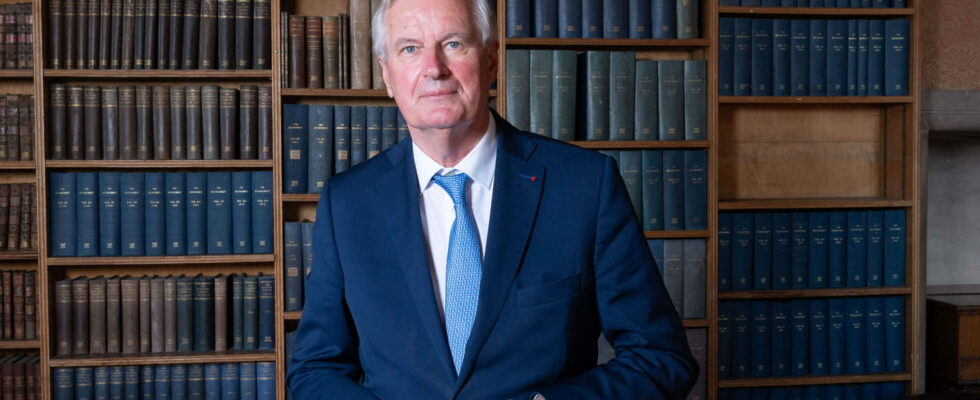Appointed Prime Minister on September 5, 2024, Michel Barnier has a long political career behind him, marked by brilliant achievements on the European scene but also its share of failures and controversies in France.
His political CV is as long as an arm, commensurate with a political career that began more than 50 years ago. Appointed Prime Minister by Emmanuel Macron September 5, 2024 and tasked with forming a government more than 50 days after the second round of the legislative elections, Michel Barnier had never had the honors of Matignon but the list of his past functions can make your head spin. Four times minister, twice European commissioner, deputy then senator, Emmanuel Macron’s new Prime Minister can rely on a solid background, a plus that undoubtedly counted when it came to finding a personality likely to avoid censure from his first steps in the future National Assembly.
Michel Barnier has made this point sufficiently clear: he is above all a man of a territory, that of the department of Savoie, where he was a member of parliament, senator and also general councillor. He will thus play a major role in the successful organisation of the Winter Olympics in Albertville in 1992. His first mandate is thus local with a position as general councillor of the department of Savoie from 1973. Michel Barnier is then just 22 years old, he who was born in 1951 in La Tronche in Isère.
A controversial vote in the early 80s and then numerous ministerial posts
He reached the capital before the end of the 80s by being elected deputy of Savoie in 1978. The man who today becomes the oldest Prime Minister in office of the 5th Republic was then the youngest deputy of the newly constituted Hemicycle! Among his votes examined under the microscope, the one from 1981 often comes up. He opposed the decriminalization of homosexuality for those over 15, like a large part of his political camp and other figures such as Jacques Chirac or the young François Fillon.
The general public, however, knows him better for his various ministerial functions. His first portfolio was that of the Environment between 1993 and 1995, during the second cohabitation under François Mitterrand and with Edouard Balladur as Prime Minister. He would then be one of the ministers closest to Jacques Chirac, who first entrusted him with European Affairs between 1995 and 1997, an entry point to the prestigious Quai d’Orsay where he became Minister of Foreign Affairs between 2004 and 2005. There, he would sign a resounding failure when defending the European Treaty of Lisbon in 2004. Jacques Chirac lost the referendum and Michel Barnier his post since he was not reappointed.
His last ministerial post dates back more than 15 years, as Minister of Agriculture and Fisheries (2007-2009) during the presidency of Nicolas Sarkozy. He returned to Brussels and was somewhat forgotten on the French scene, where he is still seen today as a man of files. It was also in the EU that his technocratic profile shone when he took up the post of chief negotiator of the European Union for Brexit. Michel Barnier established himself as a strong man in the negotiation with the United Kingdom, to the point of being praised by his European colleagues for his management of a 5-year-long dossier of talks, stages and muscular arm wrestling.
A failed 2021 primary campaign, his position on immigration
Michel Barnier will take advantage of this to return to the forefront by running in the 2021 LR primary for the 2022 presidential election. “Authority, dialogue, trust” is then his mantra, quickly eclipsed by a controversial proposal, that of a “referendum and a moratorium on immigration”. It is combined with the ambition to “regain our legal sovereignty”, even if it means no longer submitting to the rulings of the EU, the European Court of Justice or the European Court of Human Rights in the lead. Outcry within LR who sees this as his shift towards ideas close to the RN. He will then try the idea of a “constitutional shield” which would have priority over the EU before falling into line behind the candidacy of Valérie Pécresse.
Since then, he has advocated a rallying of the LR, and countered the supporters of a return to a tighter party, heir to the RPR: “I think it would be a mistake not to return to this synthesis, this rallying between men and women who have a more national vision, more sovereignist sometimes and others who are European like I am”, he slipped in 2022 on the air of Public Sénat, not without adding that he wanted to counter a political panorama only composed of a “central bloc” and two extremes. Two years later, he entered Matignon facing a National Assembly divided as never before in the history of the 5th Republic.
